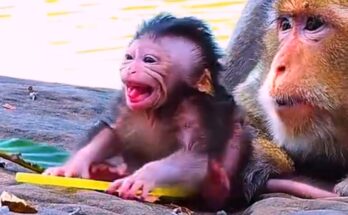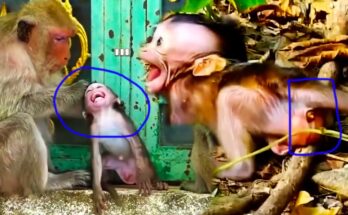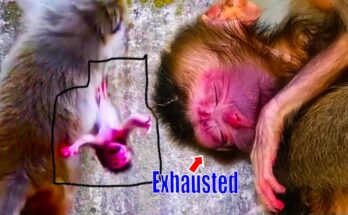
Libby was always known as a sweet and curious monkey, a young primate macaque who had grown up in a close-knit troop. But something changed when baby Lily arrived. Lily, with her wide eyes and tiny fingers, quickly became the center of everyone’s attention. Her adorable squeaks and playful energy charmed not only the other monkeys but also the humans who often watched over the troop.
Libby, once the baby of the group, found herself confused and a little left out. She didn’t understand why the attention she used to receive was now given to this tiny, new baby. As a result, Libby began to act out. She would pull Lily’s tail or take her food — not out of true meanness, but out of frustration and jealousy.
But what many didn’t see was that Libby still followed Lily everywhere. When Lily cried, Libby would often sit nearby, watching with a soft look in her eyes. There was something deeper under her actions: a love she didn’t yet know how to express.
Primate behavior is complex, just like human emotions. Young macaques like Libby struggle to adjust to change, especially when they lose their place as the “baby.” Still, with time, patience, and care, Libby began to accept Lily. She started grooming her gently, sharing fruits, and even letting her climb on her back.
So why did Libby do like this to adorable baby Lily? Because she loved her — she just didn’t know how to show it at first. The bond between primates is strong, and love, even when it starts with confusion or jealousy, finds its way through.
In the end, Libby and Lily became inseparable — two hearts learning what family really means.


